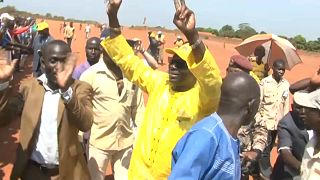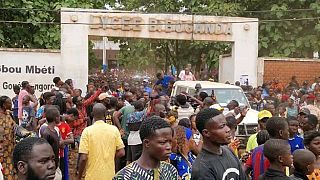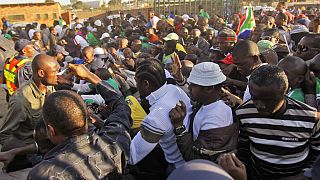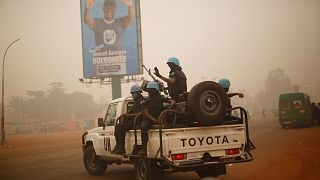Central African Republic
Former President of the Central African Republic François Bozizé will no longer be eligible to contest in the December elections. On Thursday, Bozizé’s candidacy was invalidated by the country’s Constitutional Court.
The court cites his prosecution for assassinations, torture and sanctions by the United Nations for the decision. The former Central African Republic president is a subject of an international arrest warrant issued against him in 2014 for ‘’murder, arrest, kidnapping, arbitrary detention and torture.
In July, Mr. Bozizé had announced his candidacy for the December 27 elections after he was ousted from power in 2013.
UN sanctions
Bozizé is still under sanctions by the United Nations for his role in the 2013 crisis, during which he is accused of supporting the Christian anti-Balaka militias.
At the end of January, he said that “nothing” would prevent him from running as a candidate in the presidential election and that he would ask the UN to consider dropping the sanctions against him.
Bozizé will very likely run against the incumbent Touadera, whose candidacy has not yet been officially announced, even if observers regard it as a certainty.
There have been flare-ups of violence between militias, who often exploit ethnic tensions.
UN experts warned in mid-July that the “prospect of elections has provided armed groups with another reason to maintain and increase their territorial control”.
Their report pointed to an influx of foreign fighters, principally from Sudan, which shares a border with the northeast of the Central Aafrican Republic and regularly sees inter-militia fighting.











Go to video
Togo suspends French state-owned broadcasters RFI and France 24
Go to video
Protesters gather in Ivory Coast, demand Thiam's return on electoral list
02:13
Cameroon: Police, opposition supporters clash as election looms
01:25
Burundi awaits results of local and parliamentary elections
01:00
Ivory Coast: opposition candidates barred from electoral lists
01:53
Italian Constitutional Court holds hearing on detention of rescue ship in 2024